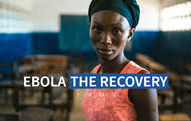Country contact shim
Speeches Shim
The West African nation of Guinea is bordered to the north by Guinea Bissau, Senegal, and Mali, and to the south by Sierra Leone, Liberia, and Côte d’Ivoire. The country has a population of about 12 million people.
After more than 50 years of authoritarian regimes and gaining independence in 1958, Guinea witnessed its first ever free presidential election in 2010, thereby beginning its transition to democratic rule. Since then, the country has made dramatic improvements in macroeconomic governance and public financial management.
Agriculture and natural resources, as well as the manufacturing and services sectors, are some of Guinea’s economic assets. Agriculture is the country’s main source of employment and is critical for poverty reduction and rural development, providing income and on-and off-farm employment for 80% of the population.
Guinea is endowed with vast natural resources, especially mining and hydropower resources, which could generate substantial income. The country is estimated to have the largest reserves of bauxite in the world and is one of the largest producers of the mineral. Iron ore, gold, and diamond mining also represent key markets for the country.
As a young democracy in a multi-ethnic society that is still emerging from a half century of authoritarian rule, USAID is working with the Government of Guinea to build an inclusive democratic culture, adherence to the rule-of-law and corresponding institutional capacities to ensure transparent, peaceful and legitimate electoral and political processes. USAID also works to strengthen the health system for improved service delivery, and we work to support economic growth by helping to improve agricultural productivity. Our programs promote gender equality in the areas of health service, agriculture, employment, especially among young people, and decision-making opportunities, particularly for women and girls.



Comment
Make a general inquiry or suggest an improvement.